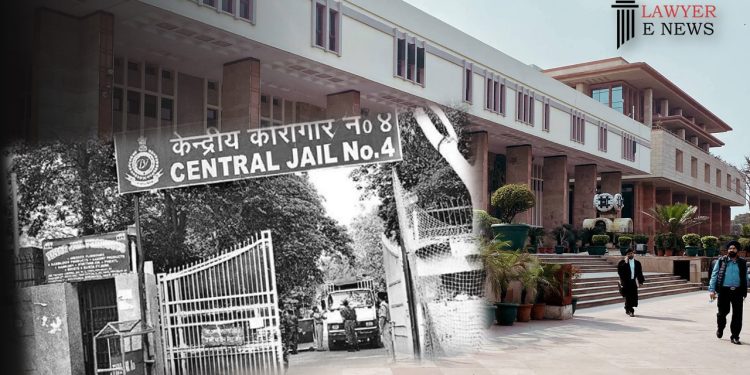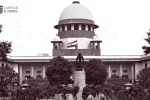Delhi High Court Upholds Limit Prison Visits For Undertrials And Prisoners – PIL Dismissed

Delhi HC observed in the recent Judgement (PIL JAI A. DEHADRAI AND ANR Vs GOVERNMENT OF NCT OF DELHI AND ANR. D.D. 16 Feb 2023) that the scope of interference by the courts in matters of policy is well-established. Policy decisions of the Government should not be interfered with unless the policy is contrary to provisions of statutory rules or of the Constitution.
The writ petition (PIL) challenges Rule 585 of the Delhi Prison Rules, 2018 and seeks an amendment to include open interviews with legal advisers from Monday to Friday with no cap on the number of interviews per week. The petitioners have also requested more frequent visits by legal counsel to their clients in Delhi prisons. It’s allowing reasonable facilities for a prisoner to communicate with family members, friends, and legal advisers for various purposes.
The petitioners argued that limiting the number of visits by family members, friends, and legal advisers to twice a week is a violation of Article 21 and Article 14 of the Constitution of India. They contend that the cap is arbitrary and restricts the undertrial’s right to adequate resources for legal representation and access to justice.
State oppose the PIL on the ground that the Delhi prisons have a significant number of inmates beyond their sanctioned capacity. Thus, a cap on the number of visits by family members, friends, and legal counsel was implemented to manage the situation. The State argues that providing two legal interviews can be increased upon the prisoner’s request, and it does not violate the prisoner’s constitutional rights.
The Delhi High Court held that the State’s decision to limit the number of visits by family members, relatives, friends, and legal advisers to two times a week for undertrials and prisoners is not completely arbitrary. This decision was made after considering the facilities available in the prisons, the number of undertrials, and the availability of staff.
The Court noted that in matters of policy, it does not substitute its own conclusion for that of the government simply because another view is possible. Therefore, the Court declined to issue a writ of mandamus.
However, as the PIL was filed in the interest of prisoners, the Court allowed the petitioner to make suggestions to the State, which it expects the State to consider in the right spirit.
PIL JAI A. DEHADRAI AND ANR Vs GOVERNMENT OF NCT OF DELHI AND ANR.






